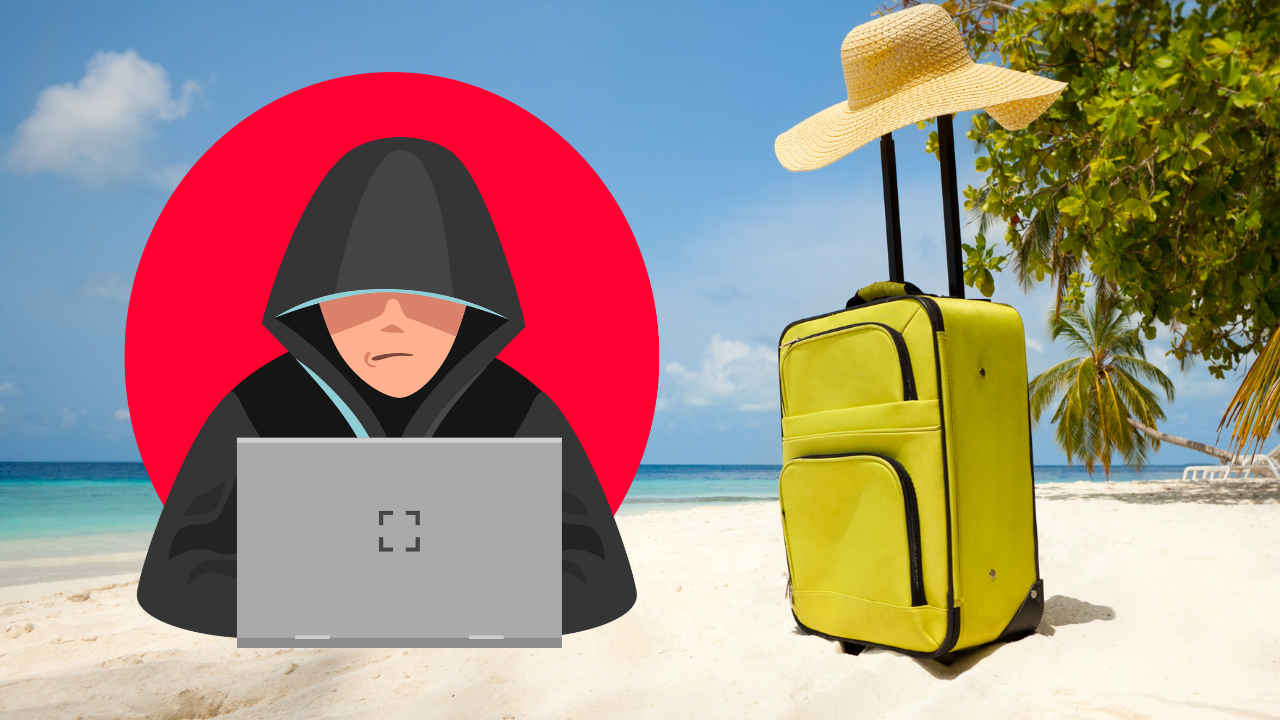Travel scams and fake QR codes: 5 key warnings from McAfee’s holiday report

In case you’ve constantly confined yourself into an airconditioned room, the Great Indian Summer is upon us. It’s that time when we (our family, friends, coworkers and then some in WhatsApp groups) collectively Google things like “best hotel near Shimla” and “what new things to do in Goa 2025.” It’s also when we buy cheap air tickets at 1 am, Google Pay money to strangers offering “relaxing villa stays,” and trust our banking info to travel sites with names like HolidayEzee4u. Enter McAfee’s latest report — India Safer Summer Travel Research — and it reads like a gentle but urgent slap on the wrist for anyone contemplating a summer trip.
The findings of McAfee’s report (which focused on the topic of travel scams and the impact of these scams on consumers, was conducted online in February 2025 with 7,000+ adults respondents in the US, UK, France, Germany, India, Japan, and Australia) couldn’t be any clearer. As our appetite for deals, getaways, and sporting events grows, so does the risk of falling into digital traps. Scams, it turns out, are not just a Western-world problem, as anyone who’s watched Jamtara on Netflix or fallen prey to one here in India would have you know.
Also read: Cybersecurity 101: Common cyber threats and online safety concepts explained
Here are five things we learned that every Indian traveller — seasoned or first-timer — should pay attention to before clicking on that tantalizing “limited-time offer” in their browser window:
1) Indians and scammers both love a good deal
If there’s one thing that binds us across states, languages, and generations here in India, it’s our love for a great bargain. Unfortunately, cybercrooks know this all too well. McAfee’s study reveals that while 86% of Indians research common travel scams, almost half (47%) still fall for them. That’s not just a statistic — it’s a wake-up call.

From fake payment sites to dodgy holiday rentals, the traps are evolving. One in five people who were scammed lost more than ₹40,000. For many families, that’s the entire travel budget. Younger Indians (25–34) were the most affected, with 31% clicking on malicious confirmation links and 25% falling for manipulated photos of destinations that looked more Maldives, less Madh Island.
In short, if the deal looks too good to be true, it almost always is. And if it promises “unlimited luxury at 70% off,” it’s probably going to end in unlimited stress.
2) IPL ticket scams are through the roof
Nothing fires up the Indian imagination quite like cricket. And with the IPL in full swing, thousands are scrambling for tickets, booking travel, and heading to stadiums. But they’re also, inadvertently, walking into a playground of online deception.
As much as 82% of Indians traveling for major sporting events — like the IPL — are worried about ticket scams, and rightfully so. Think fake links, stolen QR codes, and bot-driven reselling platforms. McAfee’s research found that 23% of these eager fans aren’t quite sure how to avoid scams, even though 60% say they plan to be more cautious.
Also read: How to protect from phishing attacks and practice safe browsing
Please understand that this isn’t about only a cricket match, if it’s about risking your identity, bank account, and more in the process. If you’ve ever WhatsApped someone named “Cricket Bhai” for last-minute passes, maybe rethink that strategy this year.
3) Scammers are levelling up their game
It’s not just fake hotel bookings anymore. The newer wave of travel scams looks almost indistinguishable from the real thing. The enemy isn’t just “too good to be true.” It’s “looks good enough to believe.”

According to McAfee, 22% of Indians clicked on a confirmation link from an unknown source that turned out to be a scam, while 19% gave away card details to fake websites. More troubling? As much as 10% spoke to “travel planners” who simply didn’t exist.
It gets worse when you’re already on holiday: 21% paid deposits for rentals that didn’t exist, 18% booked excursions that never showed up, and 12% even experienced identity theft after their passport or ID was stolen.
The takeaway? It’s time to get real, without wasting any time or money, and assume that scammers know what you’re looking for — and are building their traps accordingly.
4) Even QR codes are getting compromised
Yes, even QR codes are no longer safe. McAfee’s report highlights how 10% of Indian travellers had their boarding pass QR code stolen — a seemingly minor thing that can lead to major consequences. Cybercrooks can scrape your personal and travel info, and potentially manipulate it to access other digital assets.

Also read: Top online safety tools to strengthen your cybersecurity in 2024
Throw in public Wi-Fi networks, fake hotel representatives, and social media oversharing, and it’s easy to see how even a simple beach holiday could turn into a logistical nightmare.
McAfee’s advice here is to think before you click. And definitely think before you post your live location. That “View from my Airbnb” Insta story might be a postcard to a scammer.
5) We know the risks but don’t care enough
Here’s the paradox. Most Indian travellers are aware that scams exist. We even talk about them in groups and family WhatsApps. Yet, over half (51%) have either fallen victim to one or know someone who has. Why? Because we’re often too trusting, too rushed, or too distracted when planning a trip.
“With more than half of Indian holidaymakers or their acquaintances having experienced scams, it’s essential for everyone to verify sources, use secure payment methods, and be wary of deals that seem too-good-to-be-true,” says Pratim Mukherjee, Senior Director of Engineering at McAfee.
We’re not saying don’t travel. We’re just saying don’t lose your wallet, identity, or peace of mind trying to save ₹500. McAfee’s report serves as a timely nudge, that digital hygiene is just as important as packing sunscreen or remembering your charger. Stay safe, stay smart — and for heaven’s sake, double-check that QR code.
Also read: Guide to secure online transactions: How to shop safely and avoid scams online
Jayesh Shinde
Executive Editor at Digit. Technology journalist since Jan 2008, with stints at Indiatimes.com and PCWorld.in. Enthusiastic dad, reluctant traveler, weekend gamer, LOTR nerd, pseudo bon vivant. View Full Profile




